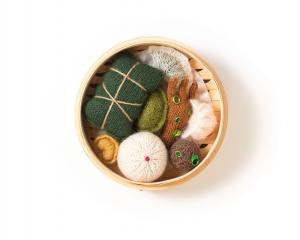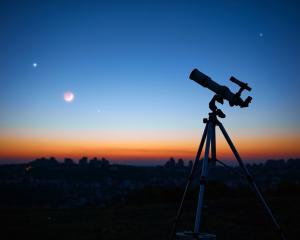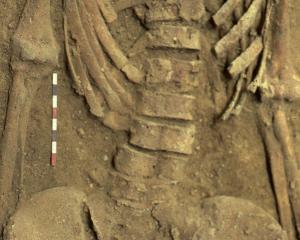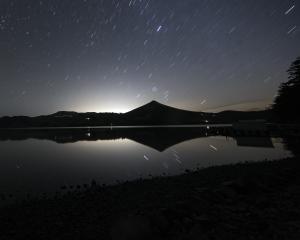Keith Murray is a humble and unassuming man.
He plays down his impressive racing record but while most men his age are content with the odd round of golf, Murray has just completed a brutal, two-day multi-sport race around his home town.
He had a late call-up to do Red Bull Defiance with his mate Bob McLachlan (43) and immediately launched into intense training mode.
The two veterans finished fifth overall and fourth men's team amidst a stellar field of international racers, many of who were half their ages.
Perhaps his Scottish roots gave him the fortitude that would see him become a five-time winner of New Zealand's premier mountain running event, the 60km Kepler Challenge through the Fiordland National Park.
Bought up in Edinburgh, the eldest of three children, Murray played traditional sports at school - rugby and cricket.
''Because that's what you did. There weren't any other options,'' he says.
At secondary school he discovered an enjoyment of squash, which has lasted through to the present years. But there was no sight of any form of bike (road or mountain) - a mode of transport that would become integral in his Coast to Coast and adventure racing years in the 1990s.
''I never really biked. I always used to like running. That was my main means of fitness,'' Murray confesses.
Genetics may well have played a part in his adventurous spirit.
His father was one of the first people to climb all of Scotland's Munros (a mountain with a height over 914.4m or 3000ft), of which there are about 280.
Murray studied medicine at Aberdeen University and left for New Zealand in 1986 to work at Timaru's hospital after a friend had persuaded him he would love it over here. And love it he did.
''It was amazing to find a country where it was actually sunny most of the time,'' he says, laughing.
Murray remembers it as one of the most fun times of his life. He and his young fellow doctors would try to fit in three sports a day. Running, rock climbing, wind surfing, tennis, golf - anything active and they were into it.
Murray met his match in his American wife-to-be Andrea on a wind-surfing trip in Hawaii in 1988.
Climbing and ski touring missions abounded, where Andrea proved she had the mental and physical toughness that would see her and her husband form half of successful, international four-person adventure racing teams in the late 1990s.
Rewind for now to the early 1990s and Murray was living in Christchurch and considering a new challenge.
''Everyone in those days was talking about the Coast to Coast as a way to really test yourself,'' he says.
First he had to learn to paddle a kayak and anyone who has sat in a multisport boat will know they are possibly the most unstable flotation devices on the planet.
''It was a bit challenging. The balance thing,'' he recalled.
In 1992, Murray made his Coast to Coast debut, entering the two-day section.
However, after all his paddling efforts, the kayak section was cancelled that year because rain had flooded the Waimakarari River.
He won, yet felt it was not a complete race without the kayak. So he entered again the following year, earning the same top result.
Although Murray found the road biking sections ''a bit boring'' he eventually came to relish the gritty run stage over the 1100m Goat Pass.
''The first time I really disliked it. I couldn't get any rhythm.''
The river bed, boulders and streams, contributed to the ''stop, start'' nature and left Murray ''feeling exhausted but without having a proper workout at the end''.
Repeated runs through it improved his perception of the stage that was to become his greatest strength.
''The more I did it, the more I got used to it and came to enjoy it.''
In 1994, Murray decided to step up to the one-day ''Longest Day'' Coast to Coast, feeling physically ready and mentally prepared for what it would involve.
Forget sports gels and carbohydrate-laden energy drinks, Murray had his own proven nutrition plan to follow.
''I did the old Raro and gingernuts thing, which I became famous for and, to be honest, I haven't changed much either,'' he says, with a grin.
It was a winning and record-breaking recipe.
Murray finished in 10hr 34min 37sec and beat Steve Gurney, who would go on to win the event nine times, by about 20 minutes.
Running into the crowd-lined Sumner Beach finish line after the gruelling day, to break the winner's tape, was an ''amazing'' memory, Murray says.
The closest anyone has come to toppling his record was Richard Ussher in 2011, when he finished within seven minutes of breaking it.
He told The Press that Murray was his early multisport hero and he had even more respect for the flying doctor's efforts considering he was not a professional athlete.
''Keith was one of my all-time heroes, as far as multisport goes. He set all those records all over the country while he was still working as a doctor.
"I'm a fulltime athlete and I still can't beat his time. That speaks volumes for what a marvellous athlete he was,'' Ussher said.
Coast to Coast creator Robin Judkins described Murray as ''the best all-rounder of his age''.
He surmised with a chuckle that in his day the ''terrible thing'' about him was that ''he was impossible to beat''.
The run course is now 8km longer than when Murray set the record, so it will take a combination of a phenomenal athlete and perfect conditions to see his record fall.
Content with his Coast to Coast Longest Day victory, Murray turned his attention to adventure racing, which was beginning to take off as a lucrative sport internationally in the late 1990s.
Going from racing intensely for a day or two days, to racing non-stop for up to a week took some adjustment, Murray says.
''It was definitely hard but the good thing was everyone else found it hard. There was a lot of learning going on.
"You are looking after the different bits of your body to make sure you get through the race. Wondering when to sleep and how long to sleep for.''
In the early days, the competitive teams would race for 36 to 40 hours without any shut-eye and even after that would only grab a one-hour kip before pushing on, Murray says.
He cut his teeth on New Zealand's Southern Traverse races, winning several with Christchurch-based team mates before venturing overseas.
Murray went on to win three international Eco Challenges and the Mild Seven Outdoor Quest held in China and Borneo three times also.
Teams were required to have a race ratio of one female to the three male competitors and Andrea was a natural choice for her husband.
''I knew what she was capable of - she is quite a determined person. I have total confidence in Andrea's abilities and she is very strong not only physically but psychologically,'' Murray said.
She also had the advantage of being accustomed to the sleep deprivation that hounds adventure racers, through being a mother to their two young boys.
''Andrea and I remember hallucinating quite wildly while racing, at times,'' he says, laughing.
While the pay cheques varied, Murray pointed out that when they raced together they would take home half the four-person team's prize money, which could amount to $US10,000 ($NZ13,000) each.
Despite the aches, blisters and lack of sleep, adventure racing has many pluses, Murray says.
He travelled the world to compete - mountain biking, trekking and kayaking in some amazing places.
And the people involved made what could at times be unpleasant experiences, bearable and even enjoyable.
''All the friendships and camaraderie that develop amongst adventure racers, you develop really lasting friendships from that.''
Andrea and Keith have three children Charlie (18), Craig (16) and Fiona (13). Unsurprisingly, all three are keen on biking, running and skiing.
In fact, the boys have persuaded their parents to enter the Godzone adventure race as a family team in late February.
Held around Wanaka, the four to five-day event has meant Murray has had to up his latter-years fitness regime of squash, cross-country skiing and the occasional kayak to running, biking and paddling in earnest.
The summer holidays will be punctuated with some ''fun trips into the hills'' as the family prepare to race together.
For Murray, it will be just like riding a bike, something your body never forgets how to do.
He and Andrea will be making sure all four of them look after their bodies and get enough sleep, which will be the key to finishing the gruelling Godzone.
''Craig is only 16 and will need more sleep than most competitors and I'm 53 and need more sleep than most competitors,'' Murray jokes.












